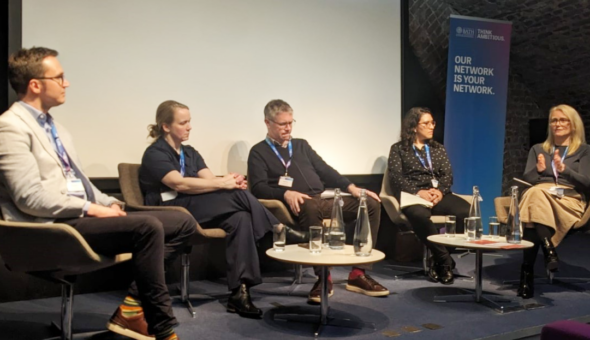As protests sweep the globe, conversations around racism, colonialism and discrimination are taking place in our homes, workplaces and parliaments. Many people are examining their own role in perpetuating systems of white supremacy, and learning what they can do to change things.
Dr Deborah Brewis spoke at the ETHOS event, ‘Decolonizing the Business School’. Here she lays out some of the steps that individuals and institutions can take to transform, and do the necessary work of anti-racism.
The question of how we can take actively antiracist action has been pressing for universities, who play an important role in creating and reproducing knowledge in both research and teaching about organisation and management. As institutions and as individuals, our responsibility extends to how we shape future leaders: the knowledge they have of history, their understanding of what is just practice, even their sense of what is possible.
There are many resources available that offer a way into the topic of antiracist practice and strategy. My work with the Building the Antiracist Classroom (BARC) collective over the last few years, working with higher education providers nationally, has given me insights into the types of questions that people have when broaching this topic. One recurring question that inevitably occurs in dialogue, once someone has understood the pressing nature and scale of change required, is: What can I do?
This is a difficult question to answer. What we can do is shaped by the context we find ourselves in: the resources we have access to, our sense of relative safety, our positionality in relation to oppression. But each of us can act from within these structures, and reflection on them helps us to locate what these actions might be.
Here are five things that most allies do from within higher education:
- Amplify the work of people of colour who have been doing anti-racist work for many years, especially women of colour whose work is often overlooked or appropriated. Read and listen to their work, resist the appropriation of it and intervene by calling this out where necessary.
- Resource and advocate for dedicated spaces and resources for staff and students of colour – including access to specialist counsellors and appropriately valuing the labour that staff and students of colour are asked to do for free.
- Critique and intervene in the mechanisms of capital that exploit the Global South. Both in terms of the knowledge we teach (and don’t teach) and how we teach it. More than this, we can re-examine our university structures: fees, assessments, governance and support. We can work against the ‘deficit model’ where Black and brown students are regarded as ‘lacking’ skills and knowledge.
- Revisit and intervene in performative acts of allyship. Take stock and seek to leverage the resources that we have access to: seek to reroute them to staff and students of colour and from the Global South, without seeking primary benefit to ourselves.
- Learn about and call out defensive responses to antiracist work e.g. fragile emotional responses, derailing, appropriation, gaslighting, tone policing, and whataboutism; along with anti-blackness, including from within communities of colour and allies.
Photo by Joan Villalon on Unsplash
Respond



